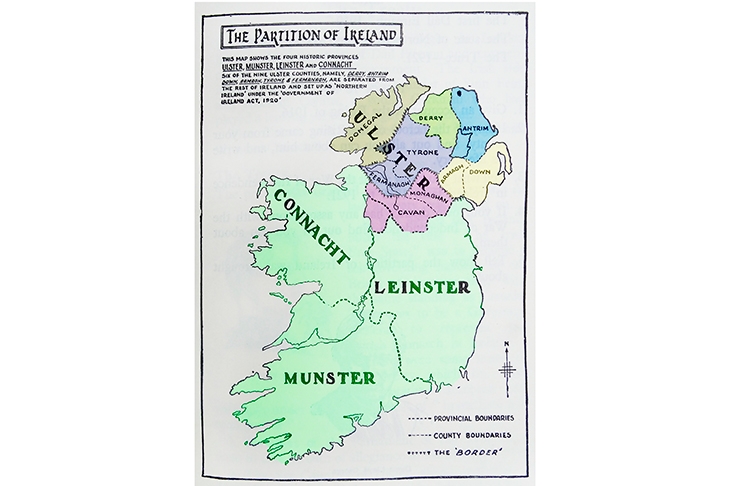Charles Péguy’s adage that everything begins in mysticism and ends in politics is sharply illustrated by the development of the Irish Revolution. In his previous scintillating studies, Easter 1916: The Irish Rebellion and The Republic: The Fight for Irish Independence 1918–1923, Charles Townshend traced the progress of Ireland’s long-drawn-out severance from Britain. The completion of the trilogy is delivered with his characteristic scholarly panache. And by foregrounding how Northern Ireland came into being in 1920–21, and was sustained by the notable fudge of a non-delivering Boundary Commission in 1925, he brings into unforgiving focus the carelessness, double-dealing and myopia which has bedevilled Britain’s government of Ireland, so spectacularly demonstrated in our own day by the current impasse over Northern Ireland’s treatment under Brexit.
Townshend’s study reaches back to the emergence of Home Rule at the forefront of British politics in the mid-1880s, and the early exploitation of Ulster’s resistance by the Conservative party — spearheaded by Lord Randolph Churchill in 1886 and followed by equally opportunistic political descendants. They had potent material to work with: the intransigent and exalted creeds of Orangeism and Unionism, described by one contemporary observer in terms of jihad, and characterised by Townshend in one of his succinct sub-heads as ‘vigilantes and vanguards’. Opposition to Home Rule was an article of Ulster Protestant faith, and guerrilla street politics in Belfast had become an established expression of anti-nationalist and anti-Catholic feelings well before the turn of the century.
Carelessness, double-dealing and myopia bedevil Britain’s government of Ireland to this day
What is less clear is when the idea of Ulster going it alone became an accepted option. When the third Home Rule Bill actually managed to pass into law during 1912–14, violent paramilitary resistance was threatened in the north-east, and most Unionists in the rest of the island (slow learners, as ever) assumed that this agitation was holding the ring for keeping the whole island in the Union.







Comments
Join the debate for just £1 a month
Be part of the conversation with other Spectator readers by getting your first three months for £3.
UNLOCK ACCESS Just £1 a monthAlready a subscriber? Log in